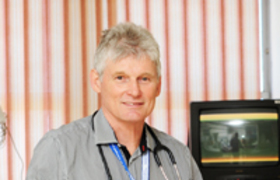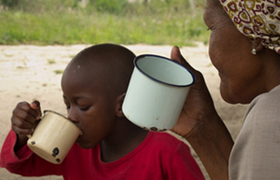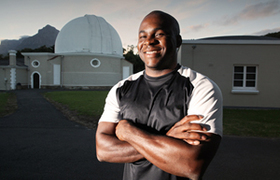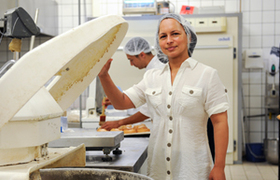UCT study into psychological impact of rape a first for SA
17 February 2014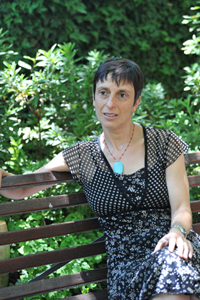
Considering the high prevalence of rape in the nation, it is remarkable that until recently there has been no research into the psychological impact of rape within the South African context.
South Africa has the highest number of rapes per 100 000 people compared to 13 other countries with similar economic profiles. In 2010 the figure stood at 132.4 per 100 000, compared to Botswana, where the figure was 92.9. In 2011/2012 a total of 64 514 rapes were reported to the police. Given that rape is a highly under-reported crime, multiplication of that figure by three gives a good estimation of the total number of rapes in that year.
Dr Anastasia Maw, a clinical psychologist employed at UCT's Child Guidance Clinic, saw the gap in understanding the psychological impact of rape on South African women following her work at the Trauma Centre for Survivors of Violence and Torture, Rape Crisis, and the Thuthuzela Care Centre. Thuthuzela is a one-stop facility for survivors of rape in Manenberg. It is also the site at which Maw's research was conducted.
Sixty-four female rape survivors were recruited and interviewed at one, four, 12 and 24 weeks, post-rape. A psychiatric assessment was done at each interval. Maw found that over half of the women taking part in the study merited a diagnosis of post-traumatic stress disorder (PTSD). This is more or less in line with international findings, where just under half of rape survivors suffered from PTSD.
Maw maintains the reason South African researchers had not investigated this area previously is because interest in South Africa has traditionally centred on understanding the context within which rape happens, as well as the medical and legal aspects of rape. "South African researchers have also piggy-backed on international research on psychological impact – especially US researchers, who have been particularly prolific within this field," explains Maw.
Despite the evidence in both Maw's study and international studies of high levels of psychological distress in the aftermath of rape, she points out that professional intervention in the immediate aftermath of the event might not be helpful for the survivor's recovery. "There's enough research to show that it's best to hold off on psychiatric or psychological intervention from professionals, until such time as there's been opportunity for the person to recover in and of themselves.
"There appears to an innate recovery process that kicks in automatically after the trauma. In the immediate aftermath, there appears to be a rather strong reaction resulting in a very high level of distress. People would automatically turn to those they trust the most – not strangers and professionals, but their friends and family. If such support isn't forthcoming, or it isn't enough over time, then you might have to start considering the need for help from a mental health professional."
Although the women interviewed by Maw expressed a strong need for counselling, "–they didn't take up the offer of counselling; or if they did, they would only come for one session.
"A lot of practical needs were expressed, like getting help with child support and disability grants, finding jobs, help with completing education, help with safe housing. These are social development needs, not psychological needs, although they impact greatly on psychological well-being. When you ask women what they actually need, it's not a space in which they can talk. They need to create a life that is safer and more stable," Maw states.
Story by Abigail Calata. Image by Raymond Botha.
 This work is licensed under a Creative Commons Attribution-NoDerivatives 4.0 International License.
This work is licensed under a Creative Commons Attribution-NoDerivatives 4.0 International License.
Please view the republishing articles page for more information.







